Overcoming My Moments of Jealousy
 There are fleeting moments when I get jealous. When a post pops into my Facebook feed or someone tells me of a great thing they’ve done as a family. In these moments, I feel like we are missing out as a result of my son’s autism, and I struggle with the loss of things that we can’t do/struggle with/have never done.
There are fleeting moments when I get jealous. When a post pops into my Facebook feed or someone tells me of a great thing they’ve done as a family. In these moments, I feel like we are missing out as a result of my son’s autism, and I struggle with the loss of things that we can’t do/struggle with/have never done.
It is not something that I am proud of, as we are happy as a family and have so much to be thankful for. It is just that when I am reminded of some of the struggles that we face, I need a little time to reset myself. Time to get past the thoughts of what we are missing out on, and time to remember the moments we do have and the achievements we have made.
Parties, Friends and Playdates
When I see children with friends or pictures of birthday parties or hear of their playdates, I am reminded of the things my son doesn’t get to experience. I feel the loneliness, but he does not. He struggles with social interaction and his need to control the world prevents him from making friends. He misses the friends he had when he was younger, but in a crowd of people it is his Dad that he turns to for company.
When I feel the loss of friendship, I remember his amazing bond with his Dad and realise that he has a great friend already.
Academic Progress
When I see children getting awards, I am reminded of the fact that he has never received an award or even been designated pupil of the week. I feel his lack of progress compared to his peers but he does not. He struggles in the classroom, requires a lot of support to get through the day and took years just overcome his resistance to writing. He is progressing slower than his peers and is not fulfilling his academic potential, but he loves searching for answers to questions that most children don’t even think about.
When I feel his slow academic progress, I remember his inquisitive mind and realise that he doesn’t need awards or validation from others to make him feel successful.
Participation in Sports and Activities
When I see children’s sporting achievements or photos of the activities that they have taken part in, I am reminded of the sports lessons that did not work out and the things we can’t do. I feel him missing out but he does not. He struggles with team sports and any regular lessons, so our weekends are typically spent at home. Given the choice he would rather run around pretending to be a superhero or playing with his Lego.
When I feel his missing out on sports and other activities, I remember the skills he has mastered to create some amazing Lego creations and his training plan to become a ninja. I realise that he doesn’t need to play a sport or learn a new skill to feel accomplished.
Days Out, Holidays and Special Occasions
When I see families enjoying fun times together, I am reminded of the days spent on edge as I work at 200% to help my son get through the day and avoid a meltdown. I feel the struggles that we go through but he does not. We need to plan our trips carefully and special occasions are often tough, but as a family we are learning what suits us best. We have had unexpected moments when our son has gone out of his way to make us laugh or do something caring for one of us.
When I feel our challenges with family events, I remember our Saturday night dance-a-thons and the summer weekends in our garden. I realise that we don’t need to go away or wait for special occasions to have special moments as a family.
Overcoming My Moments
When I have my moments, I remind myself that other peoples’ lives are not just made of Facebook moments and happy stories, and that each family has their challenges that I don’t always see. I remind myself that everyone has their moments when they deal with their own struggles, and they also likely have fleeting moments of jealousy.
I remind myself that it’s OK to feel sad sometimes and that our family is defined by what we make of the moments that we have together, not by what we can’t do. I remind myself of how far we have come, and that we are making progress every day. Who knows where we will be tomorrow.



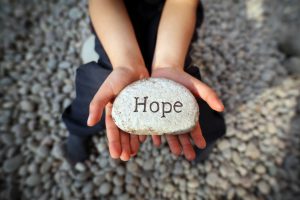 March Madness is here. Even if you don’t care for college basketball, it’s all over the news. Fun fact: Did you know that this year the odds of the 16th-seeded team winning is 10 million to one? It seems impossible, but the hope still exists. Why else would they even try?
March Madness is here. Even if you don’t care for college basketball, it’s all over the news. Fun fact: Did you know that this year the odds of the 16th-seeded team winning is 10 million to one? It seems impossible, but the hope still exists. Why else would they even try?
 I’m a special needs mom and I am tired.
I’m a special needs mom and I am tired.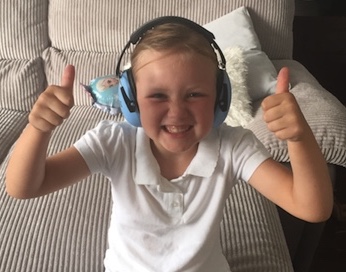
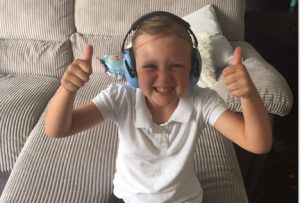 “Why do you want to label your child?” I get asked this question much too often.
“Why do you want to label your child?” I get asked this question much too often.
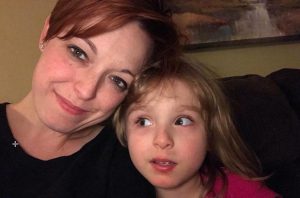 My younger daughter Zoey is not one of those 4-year-old kids that can talk your ear off or ask you a billion questions all in the span of a few seconds.
My younger daughter Zoey is not one of those 4-year-old kids that can talk your ear off or ask you a billion questions all in the span of a few seconds.
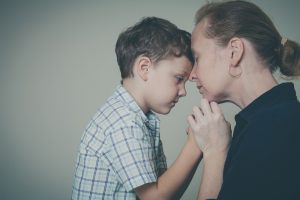 Sometimes in life there isn’t anything that anyone can say to make things better. At times, there isn’t anything that I can say at all. During those times, the tears that roll down my face speak volumes.
Sometimes in life there isn’t anything that anyone can say to make things better. At times, there isn’t anything that I can say at all. During those times, the tears that roll down my face speak volumes.
 Parenting is hard. I think we can all agree on that. You are raising a tiny little human from birth to adulthood without an instruction manual and silently praying they turn out sane and loving.
Parenting is hard. I think we can all agree on that. You are raising a tiny little human from birth to adulthood without an instruction manual and silently praying they turn out sane and loving.
 I thought I would do a series on answering some of the questions that people might want to ask but maybe not know how to ask an Autism parent like myself. My responses are simply that: My responses! I don’t speak for anyone else and know firsthand that many other parents of children on the spectrum feel very differently and some think the same. Having said that, here we go.
I thought I would do a series on answering some of the questions that people might want to ask but maybe not know how to ask an Autism parent like myself. My responses are simply that: My responses! I don’t speak for anyone else and know firsthand that many other parents of children on the spectrum feel very differently and some think the same. Having said that, here we go.
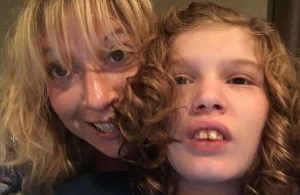 My dearest daughter,
My dearest daughter,
 Receiving a diagnosis of Autism Spectrum Condition for your child is life-changing. Even if you know, deep down, that there is something “not quite right: with your child, and that something is probably autism, actually hearing a qualified medical professional say the words can take the wind from your sails. For a second or two, the world stops turning. Everything moves in slow motion. The words reverberate around inside your head. Autism Spectrum Condition. Autism. Autistic. My child is autistic.
Receiving a diagnosis of Autism Spectrum Condition for your child is life-changing. Even if you know, deep down, that there is something “not quite right: with your child, and that something is probably autism, actually hearing a qualified medical professional say the words can take the wind from your sails. For a second or two, the world stops turning. Everything moves in slow motion. The words reverberate around inside your head. Autism Spectrum Condition. Autism. Autistic. My child is autistic.